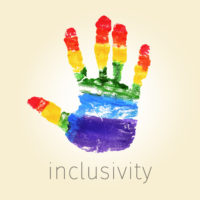
Stonewall Democrats rip lesbian lawmaker Deborah Glick for betraying a pledge
Out lesbian Assembly member Deborah Glick of Manhattan is said to be pushing back against an 11th-hour push to legalize gestational surrogacy in New York, angering the Stonewall Democratic Club of New York City and others in the community just months after she told that club she supported the measure.
Glick, who did not return multiple phone calls for this story, landed the endorsement of Stonewall in her re-election bid last year after telling the club in a questionnaire that she supported legalizing gestational surrogacy.
But she remained tight-lipped when reached by Gay City News on June 10 about her position on the bill, saying that she would need to call back, though she never did. She did not respond to multiple requests for comment at the time, but two days later told The New York Times — which reaches a broader audience — that gestational surrogacy amounts to “pregnancy for a fee, and I find that commodification of women troubling.”
The bill, which has been increasingly shrouded in controversy over women’s rights issues, now faces gloomy prospects in the lower chamber. Stonewall’s president, Rod Townsend, expressed disappointment over Glick’s apparent about-face and the bill’s loss of momentum after he expected it to pass this year.
“It’s been on our endorsement surveys for years and going back to 2014, no one seeking our endorsement has supported keeping the ban on the books,” Townsend told Gay City News. “To hear that Assemblymember Deborah Glick, a champion and member of our community, has reversed her stated support on the issue is a shock to our members.”
He continued, “Folks want to start their families without having to leave the state and jump through legal hurdles. We know and admire the assemblymember, and we feel betrayed.”
The bill cleared the State Senate under the leadership of out gay State Senator Brad Hoylman of Manhattan, who championed the measure in the upper chamber and issued emotional pleas for the legislation by sharing stories and photos of his own experience having two daughters through gestational surrogacy.
The issue heated up significantly in the final weeks of the legislative session, with Governor Andrew Cuomo intensively campaigning for it with multiple events in both New York City and Albany. The bill’s lead sponsor in the Assembly, Amy Paulin of Westchester, told Gay City News on June 10 that she and her colleagues were seeking to whip enough votes while simultaneously sweetening the pot with extra healthcare and legal protections for the women who would carry the babies.
Some have expressed concern that gestational surrogacy creates a class divide in which wealthier couples take advantage of lower-income women who serve as surrogates. Glick also told The Times that she is not certain that gestational surrogacy is an issue for the broader LGBTQ community, saying, “This is clearly a problem for the well-heeled,” a reference to the tens of thousands of dollars in cost associated with the process.
GayCityNews.com, by Matt Tracy
Click here to read the entire article.
The post Deborah Glick Key Hurdle on Gestational Surrogacy appeared first on Time For Families.
Source: Time for Families









